(p. W1) The 2000 film “Billy Elliot” was a surprise hit. It’s an absorbing drama about personal transformation and the power of art to ennoble the human spirit. “Billy Elliot: The Musical” — the noise is supplied by Sir Elton John — is a depressing spectacle about partisan politics and the ephemeral power of schlock.
. . .
The musical, a campy, anticapitalist confection, is just one of the latest prepackaged exercises in “transgression.” Maybe it’s “Corpus Christi,” Terrence McNally’s play about a gay Jesus Christ. Maybe it’s “The Goat,” Edward Albee’s play celebrating bestiality, or a production (p. W4) of “The Flying Dutchman” in which the heroine sports posters of Che Guevara and Martin Luther King on her bedroom wall. The point about these unpleasant offerings is not how outrageous but how common they are.
. . .
In the film, there was one extended reference to Margaret Thatcher. Mrs. Wilkinson’s middle-class drink-sodden husband (tellingly made “redundant” — that is, laid off) praises the prime minister for showing down the miners. He is hardly a sympathetic figure, but he had a point: If it costs more money to get the coal out of the ground then you make from selling it, why keep the pit open?
If there were truth in advertising, the musical would have been called “Billy Elliot, The Musical, Featuring Margaret Thatcher as the Incarnation of Evil.” She is roundly abused by several characters in the opening scenes, is the object of casual calumny throughout the show, and features in a Christmas children’s song — replete with gigantic scary Thatcher masks and puppets — whose refrain is “Merry Christmas, Maggie Thatcher. We all celebrate today because it’s one day closer to your death.” Nice stuff, eh?
In one sense, “Billy Elliot: The Musical” represents a growth enterprise. Everywhere you turn these days, you are met not only with celebrations of the vulgar but also entertainments that pretend to be brave, challenging “interrogations” of established taste which in fact are simply reflections of established taste. The little sermons about Thatcher and capitalism and bigotry are presented as if they were fresh thoughts designed to disturb the dogmatic slumbers of the audience. In fact, they simply reinforce the left-liberal clichés audiences everywhere internalized decades ago. It’s an odd phenomenon. In theaters and museums across the Western world you find audiences applauding sentiments that, were they translated into the real world, would spell their demise.
Perhaps it’s an instance of what Lenin was talking about when he said that the bourgeoisie was so rotten that it would sell the rope with which it was to be hanged. The matinee I attended was packed to the last emergency exit with a cheery crowd of nice, middle-class folks who cheered and clapped and whistled and bravoed.
. . .
The impressive thing about “Billy Elliot” the film is its dramatic enactment of serious questions. “Billy Elliot: The Musical” spoofs and sentimentalizes those questions, replacing them with a series of political sermons and distracting gymnastic exhibitions. In 1964, Susan Sontag famously said that the “ultimate Camp statement” was “It’s good because it’s awful.” Sontag wrote as an enthusiast for Camp. I have no doubt that she would have emerged happy from “Billy Elliot: The Musical.” “The whole point of Camp,” she wrote, “is to dethrone the serious.”
For the full commentary, see:
ROGER KIMBALL. “Culture; A Clumsy Mix of Art and Politics; Broadway turns subtle themes into simplistic fare in shows like ‘Billy Elliot’.” Wall Street Journal (Sat., DECEMBER 13, 2008): W1 & W4.
(Note: ellipses added.)


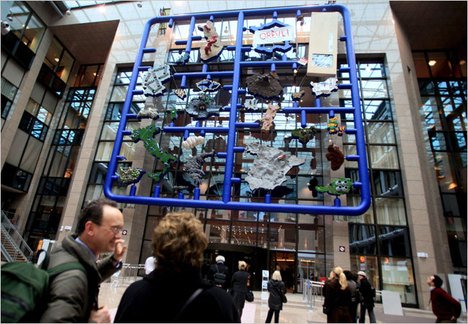


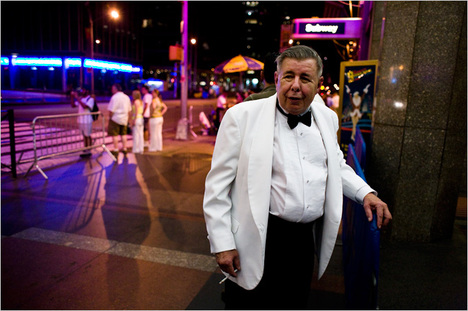
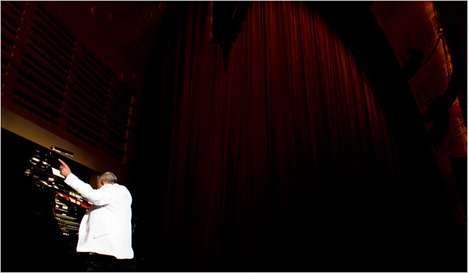
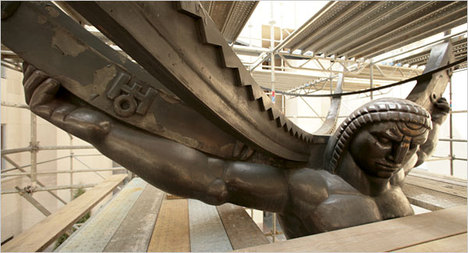
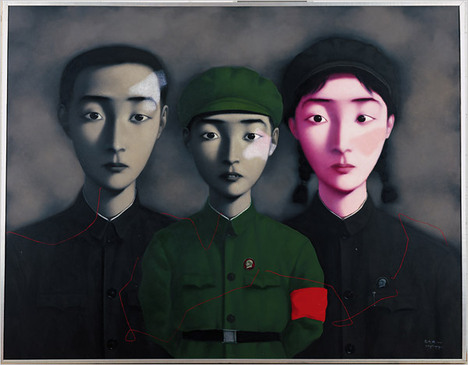
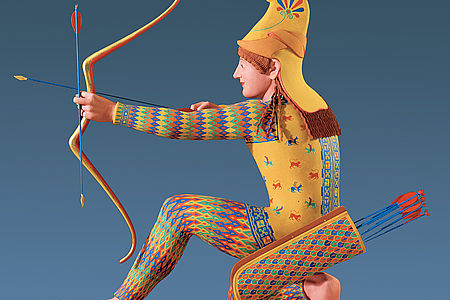

 "Freedom" (oil painting by Esam Pashwa). Source of image:
"Freedom" (oil painting by Esam Pashwa). Source of image: